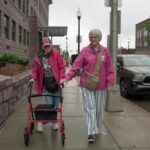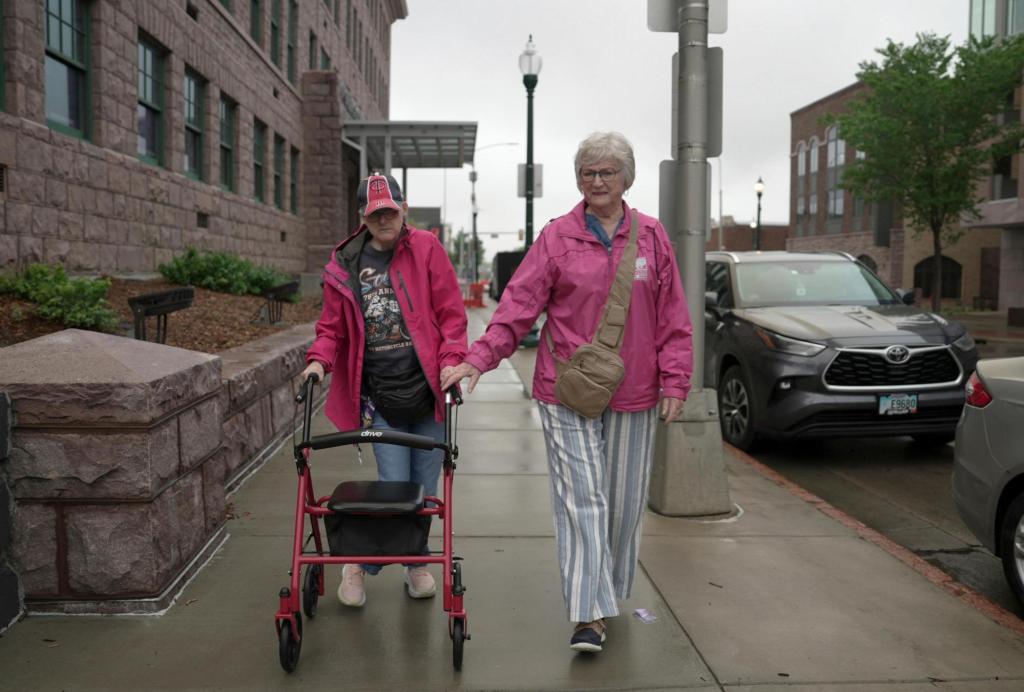In the era before widespread vaccination, infectious diseases like measles, whooping cough, and rubella claimed countless lives, particularly among children. The devastating impact of these diseases is a distant memory for many, but not for families who lived through the anguish they caused. Today, as vaccine hesitancy grows, these families are reminded of the past and fear a return to those dark days.
At the turn of the 20th century, nearly one in five children in America did not survive to their fifth birthday, primarily due to infectious diseases. Over the following decades, vaccines emerged as a powerful tool, nearly eradicating diseases such as polio and measles. However, recent trends show a troubling resurgence of these preventable diseases, fueled by skepticism towards vaccines.
Vaccination Success and Emerging Hesitancy
The success of vaccines in eliminating diseases has ironically contributed to the current hesitancy, according to Dr. William Schaffner, an infectious disease expert at Vanderbilt University Medical Center. “This concern, this hesitancy, these questions about vaccines are a consequence of the great success of the vaccines – because they eliminated the diseases,” he explained. Without firsthand experience of these diseases, many people fail to appreciate the importance of vaccination.
Anti-vaccine activists often emphasize the rare risks of vaccine side effects while downplaying the much greater dangers posed by the diseases themselves. This narrative persists despite extensive data showing vaccines are safe and effective. For some families, the resurgence of diseases like measles and whooping cough brings back painful memories of the past.
Personal Stories of Loss and Resilience
Janith Farnham, 80, from Sioux Falls, South Dakota, recalls the challenges she faced when her daughter Jacque was born with congenital rubella syndrome. At the time, there was no vaccine for rubella, and Janith contracted the virus early in her pregnancy, resulting in Jacque’s lifelong health issues. Despite the challenges, Janith and Jacque have built a life filled with love and resilience.
Similarly, Patricia Tobin remembers the tragic loss of her younger sister Karen, who died from measles complications in 1970. Tobin’s family lived in Miami, where the measles vaccine was not yet mandatory for schoolchildren. Karen’s death left a lasting impact on Tobin, who is dismayed by the current complacency towards measles vaccination.
Impact of Historical Misinformation
The decline in vaccination rates is partly attributed to a fraudulent study linking the MMR vaccine to autism, which has since been debunked. Nonetheless, the damage was done, and many states now fall below the 95% vaccination threshold needed to prevent measles outbreaks. “I’m very upset by how cavalier people are being about the measles,” Tobin expressed. “I don’t think that they realize how destructive this is.”
Polio and the Power of Vaccination
Lora Duguay, 68, from Clearwater, Florida, contracted polio in 1959, a time when the disease was one of the most feared in the United States. Despite initial predictions that she would never walk again, Duguay defied the odds through intensive therapy. Today, she lives with post-polio syndrome, a reminder of the disease that once ravaged her body.
The polio vaccine, widely embraced due to the visible threat posed by the disease, has since all but eradicated polio in the United States. The concept of “herd immunity” has been instrumental in preventing outbreaks, underscoring the collective responsibility to vaccinate.
Advocacy and the Fight Against Vaccine Hesitancy
Katie Van Tornhout of Lakeville, Indiana, lost her daughter Callie Grace to whooping cough at just 37 days old. Callie was too young to be vaccinated and contracted the disease from someone who had not received their booster shot. Van Tornhout now advocates for childhood immunization, sharing her story to prevent other families from experiencing similar heartbreak.
“It’s up to us as adults to protect our children – like, that’s what a parent’s job is,” Van Tornhout said. “I watched my daughter die from something that was preventable … You don’t want to walk in my shoes.”
As vaccine hesitancy threatens to undo decades of public health progress, the stories of families like Farnham’s, Tobin’s, Duguay’s, and Van Tornhout’s serve as poignant reminders of the past. Their experiences highlight the critical need for continued advocacy and education to ensure that future generations are protected from preventable diseases.
About The Author
 The Forgotten Toll of Measles, Polio, and Whooping Cough: Families Remember
The Forgotten Toll of Measles, Polio, and Whooping Cough: Families Remember Jennifer Aniston to Star in Series Based on Jennette McCurdy’s Memoir
Jennifer Aniston to Star in Series Based on Jennette McCurdy’s Memoir Edifier Unveils MR5 Studio Monitor with Advanced Tri-Amped Crossover
Edifier Unveils MR5 Studio Monitor with Advanced Tri-Amped Crossover Delirium Prevalence in ICU Stroke Patients Highlights Critical Care Challenges
Delirium Prevalence in ICU Stroke Patients Highlights Critical Care Challenges Ukrainian Strike on Russian Missile Facility Escalates Tensions
Ukrainian Strike on Russian Missile Facility Escalates Tensions